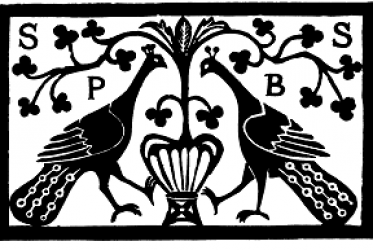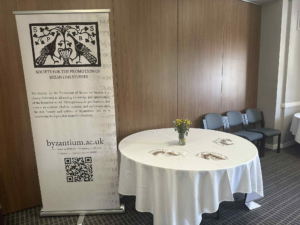12th Nordic Patristics Meeting 20–22 August 2026, University of Helsinki (Finland)
We are pleased to invite proposals for the 12th Nordic Patristics Meeting on “Prayer in Late Antiquity”, which will be held 20-22 August 2026 at the University of Helsinki (Finland). The meeting aims to explore the theme of prayer in late antiquity, both as a religious practice, the subject and medium of theological thought, and a socio-religious identity marker. We invite contributions, e.g., on the evolving concept and practice of prayer, its theological foundations, its everyday performance, and/or its role in defining religious communities and identities during the transformative period of late antiquity.
At the date of publication of this call, the following keynote speakers have confirmed their attendance:
Anni Maria Laato (Åbo/Turku), Barbara Crostini (Uppsala), Maria Munkholt Christensen (Bonn), Harald Buchinger (Regensburg), and Bishop Damaskinos (Olkinuora) of Haapsalu.
We welcome submissions for 20-mins. presentations that address one of the following three broad themes:
1. THEOLOGIES OF PRAYER
How was prayer conceptualised and theorised in Christian, Jewish, and Graeco-Roman thought? How did theologians engage with specific prayers, such as the Lord’s Prayer? And how was prayer shaped by the languages of late antique religions? Possible topics in this section include:
– Theologies and Prayer: The nature of prayer and its theological underpinnings in Christianity, Judaism, and Graeco-Roman thought.
– Functions of prayer, e.g., conversations with God, intercession, or meditation.
– Goals of prayer, such as deification, transcendence, or mystical union.
– Exegetical and doctrinal discussions on prayer found in patristic, rabbinic, and philosophical texts.
2. PRACTICES OF PRAYER
This section focuses on the tangible and performative aspects of prayer in late antiquity. We encourage contributions that examine:
– How prayer was ritualized and performed across different religious contexts.
– Intentions of prayer and their impact on practices.
– Bodily gestures, posture, and voice in prayer practices.
– The significance of sacred spaces, times, and objects in the performance of prayer.
– The interplay between personal and communal prayer, including liturgical and spontaneous forms of devotion.
13. PRAYER IN PRACTICE
This theme addresses the lived experience of prayer, highlighting how prayer functioned in shaping social identities, communal boundaries, and spiritual lives. Potential areas of focus include:
– Roles of prayer in monasticism: ascetic practices, and personal spirituality.
– Prayer as a tool for constructing religious identity and negotiating social conflicts.
– The connection between prayer and broader socio-religious changes, such as the decline of sacrifices or the rise of Christian liturgies.
– The impact of prayer on daily life, from silent prayer to public liturgical practices.
We encourage submissions from all interested disciplines, and particularly welcome interdisciplinary approaches that explore prayer as both a theological concept and a lived practice.
Submission Guidelines
Please submit an abstract of no more than 250 words by 15 November 2025, clearly indicating which
section or sections of the conference your contribution will primarily address primarily. Include your name, institutional affiliation, and contact information.
Please send your abstract to the secretary of the Societas Patristica Fennica, Mr. Tomi Ferm, at sihteeri@suomenpatristinenseura.fi
For any inquiries related to this call for papers, please contact Dr. Harri Huovinen (University of Eastern Finland) at harri.huovinen@uef.fi
The programme committee for the 12th Nordic Patristics Meeting: Harri Huovinen (University of Eastern Finland), Tomi Ferm (University of Helsinki), Ella Sahivirta (University of Helsinki), Panagiotis Pavlos (University of Oslo), Katarina Pålsson (Lund University), Florian Wöller (University of Copenhagen)









